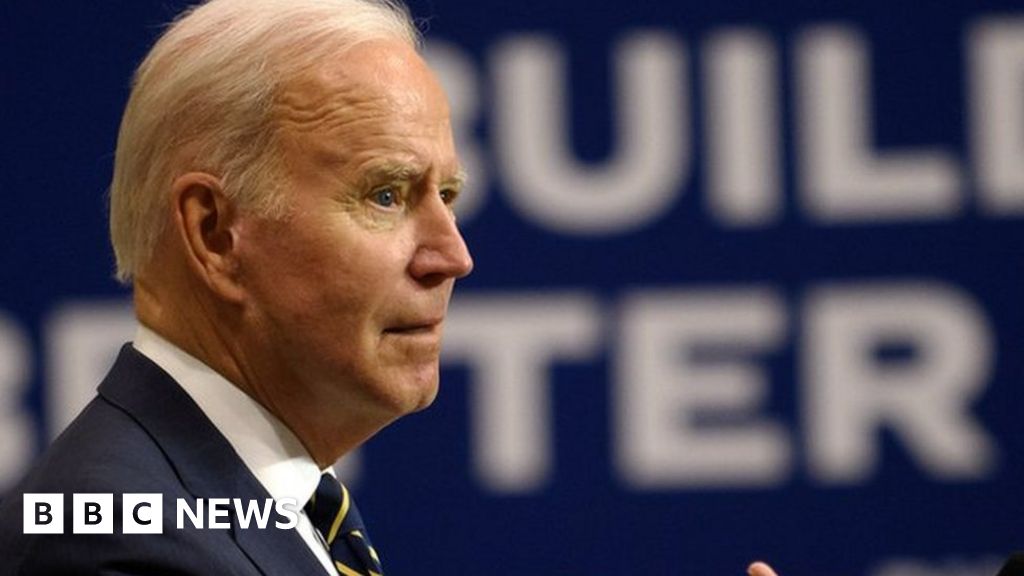image source, Getty Images
US President Joe Biden has called for tariffs on some steel and aluminum from China to be tripled.
This is the latest protectionist policy adopted by Biden, who is seeking re-election against President Donald Trump, known for his tough trade stance on China.
The White House said the proposal is aimed at protecting American jobs from “unfair” competition.
China has previously denied allegations that it dumps steel and aluminum overseas.
Dumping is the selling of excess product at a much lower price in another country, often destroying the domestic industry's own market for that product.
The president told United Steelworkers members in Pennsylvania on Wednesday that prices in China are “unreasonably low” because the government subsidizes companies that “don't have to worry about making a profit.” ” he said.
“They're cheating,” Biden said. “And we've seen the damage here in America.”
He said tens of thousands of steel worker jobs were lost to Chinese imports in the early 2000s.
“We will never let something like this happen again,” he said.
The Chinese embassy in the United States said it “firmly opposes” the measures proposed by Biden.
“Many of the United States' trading partners, including China, are deeply dissatisfied with the United States' use of national security, non-market conduct, overcapacity, and other reasons to impose restrictions and politicize trade issues. ” said embassy spokesperson Liu Pengyu. Statement to the BBC.
Peng Yu added that he expects the United States to work with China to stop “acts that violate international economic and trade rules” and remove tariffs.
The International Monetary Fund warned on Tuesday that this type of geopolitical tension risks damaging global economic growth and sending inflation in the wrong direction.
The White House has denied that the tariffs, which would raise the key border tax rate on a small number of imports from an average of 7.5% to 25%, would lead to higher prices in the United States.
Mr. Biden discussed this proposal and other pro-manufacturing efforts at a campaign rally in Pittsburgh, a key hub for the U.S. steel industry.
He and Trump are vying for support from working-class voters who could decide their voting blocs in November's election.
In addition to the tariffs, the White House also announced that it would launch an investigation into unfair trade practices in China's shipbuilding and logistics sectors, based on requests from the United Steelworkers Union and others.
The White House also said it is seeking action against Chinese companies that try to avoid U.S. border taxes by transiting through Mexico.
Mr. Biden also opposed Japan's Nippon Steel Corporation's plan to buy U.S. Steel, saying he believed the business should remain American-owned.
The increased tariffs would affect metal imports that are being reviewed under so-called 301 investigations, which focus on policies that affect U.S. commerce.
Many steel and aluminum imports from China already face border taxes, including a 25% tariff on certain steel products, and the U.S. has no national security justification. It was introduced under former President Donald Trump for a reason.
These were ruled to be in violation of global trade rules by the World Trade Organization and later canceled in many countries.
These tariffs marked a significant shift in Washington's approach to trade, long dominated by a free market and pro-trade consensus.
Mr. Trump, who calls himself a “tariff man,” has promised to be more aggressive on trade if re-elected.
He has proposed imposing a 10% border tax on all imports, which would jump to more than 60% for products from China.


